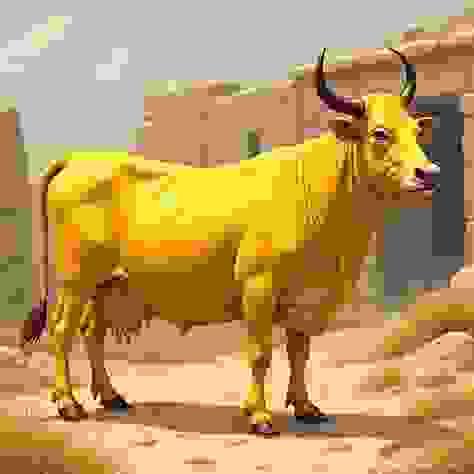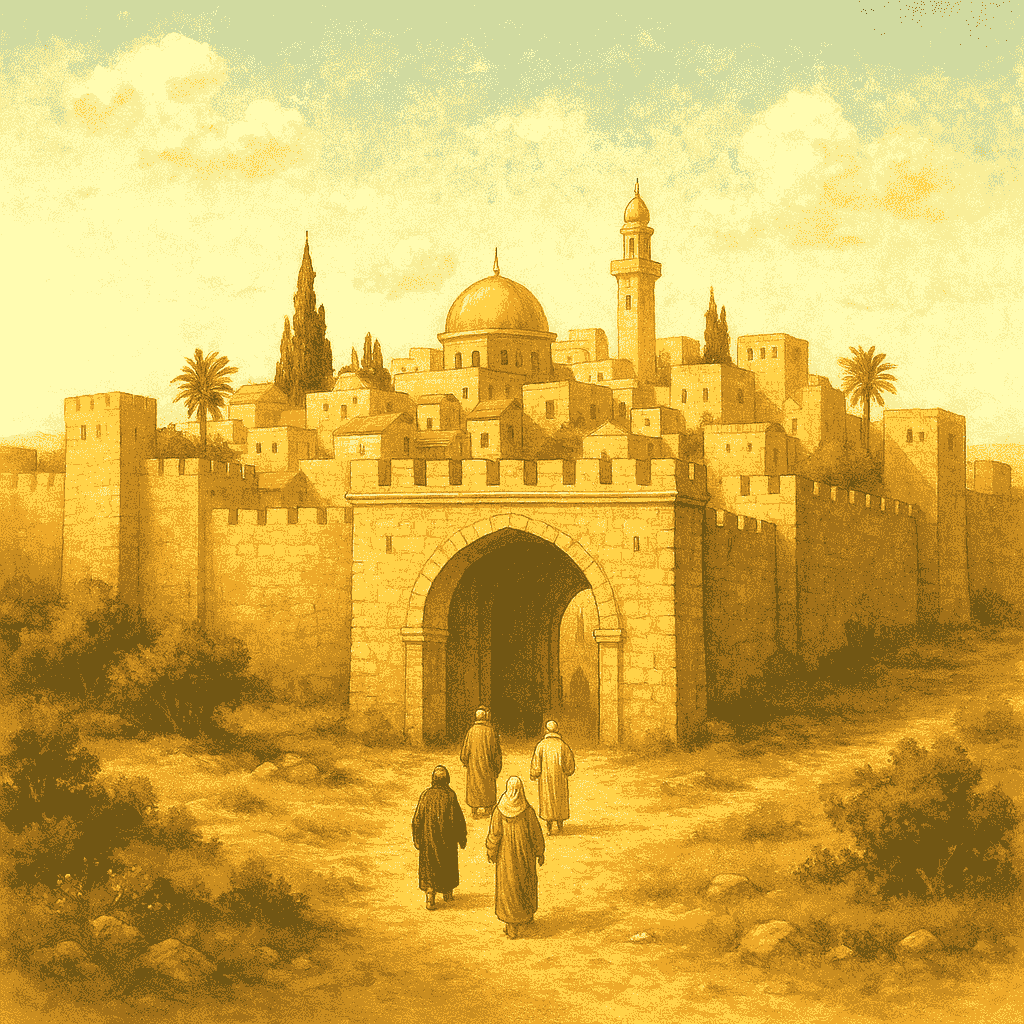
To-Elevate

The Sabbath-Breakers
Ask them ˹O Prophet˺ about ˹the people of˺ the town which was by the sea, who broke the Sabbath.1 During the Sabbath, ˹abundant˺ fish would come to them clearly visible, but on other days the fish were never seen. In this way We tested them for their rebelliousness.
When some of ˹the righteous among˺ them questioned ˹their fellow Sabbath-keepers˺, “Why do you ˹bother to˺ warn those ˹Sabbath-breakers˺ who will either be destroyed or severely punished by Allah?” They replied, “Just to be free from your Lord’s blame, and so perhaps they may abstain.”
When they ignored the warning they were given, We rescued those who used to warn against evil and overtook the wrongdoers with a dreadful punishment for their rebelliousness.
But when they stubbornly persisted in violation, We said to them, “Be disgraced apes!”
(Al-A'raf 163-166)
You are already aware of those of you who broke the Sabbath. We said to them, “Be disgraced apes!”
(AlBaqara 65)
The Story:
The story happened in a coastal village called Ayla.
As it was on the coast, fishing was the main work and livelihood of its inhabitants.
The main characters of this incident are a group of Jews who are the inhabitants of this village
The Sabbath is considered the holy day for the Jews (like Friday for Muslims, when there is a Friday prayer and there is an hour when supplications are accepted) and the Jews did not work on the Sabbath, but devoted themselves to worshipping God.
God imposed on them not to be preoccupied with the affairs of this world on the Sabbath after they asked Him to allocate a day for them to rest and worship, in which there is no work except to get closer to God with different types of worship.
The Faith of Allah took place in His creation. And it's time to test them. A test of their patience and following God's law
God Almighty afflicted them by making the fish come on the Sabbath to the coast, and from their abundance the villagers easily see them jumping on the surface of the water (as you see the sails of boats in the sea), so they are easy to catch.
But it disappears the rest of the week. The villagers could not get any catch.
After a period of adhering to the command of God Almighty, one of the Jews could not be patient with this test and decided to follow a method of obtaining fish (believing that he could deceive God Almighty) so he threw nets on the Sabbath and the fish gathered in them but did not take them until the next day. The villagers even noticed the smell of fish in his house when they could not get it, and when they asked him, he denied several times that he had fish, but in the end he confessed to them in his way.
Here, the villagers were divided into three groups:
The first imitated him and began to take fraudulent methods to get the fish that appear on the Sabbath in different ways, such as erecting pits and barriers for the fish to gather in and then take it the next day.
The second is a band adhering to God's command, so do not disobey him and do not hunt on the Sabbath, olso they adviced the first group and warns violators of God's disobedience.
The third did not share them in sin and did not disobey God, but did not forbid evil. This group also argued with the second sect that forbade evil and said to them: What is the use of your advice to these disobedient people? They will not be reconciled to their fraud, and they will be tormented by God for their actions. There is no point in warning them after God has decreed destruction on them for violating His sanctities
With the rigor of the believer who knows his duties, the deceitful ones would answer: We are doing our duty in enjoining good and denying evil, to please God Almighty, and not be an argument on the Day of Resurrection. Perhaps these words will help, so they will come to their senses, and abandon their disobedience.
And the matter continued like this, and they did not refrain from disobeying God, but they were arrogant and insisted on it, and they did not learn from the advice of the second band to them until the command of God came and His punishment was solved for them
The day came when the people of the second division woke up and found a strange calm in the villag, as if it had become empty. And they went out of their homes to find out the reason, but they did not find any of the owners of the first disobedient band, so they went to their homes and found the doors and windows closed, they tried to look inside the houses to find out why they did not go out that day and the surprise was, they found only monkeys inside their homes. So they opened the doors and asked the monkeys, are you so-and-so, and the monkey nodded his head in the affirmative, and they also asked them, haven't we warned you?" And he says with his head yes
God has turned them into apes as a punishment for their arrogance and disregard for the command of God Almighty. And when these monkeys came out of their homes, God eliminated them all and they died, and this was the end of the first disobedient division.
God insulted them by transforming them into monkeys before eliminating them because of the greatness of their guilt and their disregard for God Almighty.
As for the second sect, which obeyed the command of Allah, which advised them and forbade them from disobeying them, Allah Almighty honored them and saved them.
As for the third group, which did not disobey God but did not forbid evil, and kept silent about it as if it did not concern them, in addition to that they decided that the disobedient will not stop and that God will not forgive them if they respond to advice and repent, God treated them as appropriate for them, so He kept also silent about their fate and neglected them and did not mention them of the Qur'anic text.
Sayyid Qutb may Allah have mercy on him says:
Perhaps as an underestimation for them – even if they were not taken for punishment – as they refrained from positive denial, and stood at the limits of negative denial. So they deserved to be neglected, even if they did not deserve the punishment.
What did I gain from the story of the Sabbath owners?
• Beware of following those who violate God's law, no matter how strong their argument is.
• Beware of falling into sins, and disobeying God's rules.
• Surrender to the command of God - Almighty - and His laws in life.
• Realize that surrender to God and all that he commanded and forbade is one of the reasons for obtaining the happiness of the two worlds
• Refraining from the command of God - Almighty - is one of the reasons for the destruction of nations and their clear loss
• Enjoining good and forbidding evil is one of the reasons why a Muslim survives.
• Whoever sells his religion in this world has lost and failed.

The Story of the Cow (Al-Baqara)
Surah Al-Baqarah, Verses 67–73
2:67
And [recall] when Moses said to his people, “Indeed, Allah commands you to slaughter a cow.” They said, “Do you take us in ridicule?” He said, “I seek refuge in Allah from being among the ignorant.”2:68
They said, “Call upon your Lord to make clear to us what it is.” [Moses] said, “He says, ‘It is a cow which is neither old nor virgin, but median between that,’ so do what you are commanded.”2:69
They said, “Call upon your Lord to show us what is her color.” He said, “He says, ‘It is a yellow cow, bright in color – pleasing to the observers.’”2:70
They said, “Call upon your Lord to make clear to us what it is. Indeed, all cows look alike to us. And indeed we, if Allah wills, will be guided.”2:71
He said, “He says, ‘It is a cow neither trained to plow the earth nor to irrigate the field, one free from fault with no spot upon her.’” They said, “Now you have come with the truth.” So they slaughtered her, but they could hardly do it.2:72
And [recall] when you slew a man and disputed over it, but Allah was to bring out that which you were concealing.2:73
So We said, “Strike him with part of it.” Thus does Allah bring the dead to life, and He shows you His signs that you might reason.The story is mentioned in Surah Al-Baqara (Chapter 2, verses 67–73) of the Qur’an. It is one of the key stories that gave the chapter its name.
The Background
Among the Children of Israel, there was once a wealthy man who was mysteriously murdered. His death caused great conflict in the community because no one knew who the killer was. The people came to Prophet Moses (Musa, peace be upon him) asking for guidance to solve the crime.
Allah then revealed to Moses that the solution was hidden in something unusual: they had to slaughter a cow. This was not because of the cow itself, but as a test of their faith and obedience.
The People’s Reactions
Instead of obeying immediately, the Children of Israel argued and questioned. Their repeated hesitation turned what could have been a simple command into a very complicated task.
First Question:
They said, “Ask your Lord to make clear to us what kind of cow it should be.”
Moses replied: “It should not be too old nor too young, but in between – of middle age.”Second Question:
They said, “Ask your Lord to clarify its color.”
Moses replied: “It should be a bright yellow cow, with a pleasing color that delights those who see it.”Third Question:
Still unwilling to act, they said, “Ask your Lord to explain more, for cows all look alike to us.”
Moses replied: “It should be a cow not trained to plow the land or water the fields, free from defects, and without any spots or marks.”Only then did they finally agree to search. After much effort, they found a cow with those exact qualities—very rare and costly. Reluctantly, they slaughtered it.
The Miracle
Allah then instructed Moses to tell them: “Strike the dead man with part of the cow.”
When they did, the dead man miraculously came back to life. He identified his murderer, and the truth was revealed.This powerful event showed the Children of Israel two great lessons:
Allah has complete power over life and death.
- The resurrection on the Day of Judgment is real.
- Lessons and Morals
Lessons and Morals
- Obedience without delay: If they had slaughtered any cow at the start, it would have been enough. Their constant questioning only made the command stricter and harder for themselves.
- Faith in Allah’s power: The story proved that Allah can bring the dead back to life, reinforcing the belief in resurrection.
- Avoid unnecessary disputes: Too much argument in religious matters can complicate what was meant to be simple.
- Tests of faith may come in unexpected ways: Sometimes Allah tests us through simple commands to see if we truly submit.

The Story of Mount Ṭūr (Sinai)
Key Verses on Mount Ṭūr
1. The Appointment of Moses (40 nights)
Al-A‘rāf 7:142
And We made an appointment with Moses for thirty nights and perfected them by the addition of ten; so the term of his Lord was completed as forty nights. And Moses said to his brother Aaron, “Take my place among my people, do right [by them], and do not follow the way of the corrupters.”2. The Request to See Allah
Al-Baqarah 2:55–56
And [recall] when you said, “O Moses, we will never believe you until we see Allah outright”; so the thunderbolt took you while you were looking on.
Then We revived you after your death that perhaps you would be grateful.3. The Lifting of the Mountain
Al-A‘rāf 7:171
And [mention] when We raised the mountain above them as if it was a canopy, and they thought it would fall upon them. [Allah said], “Take what We have given you with determination and remember what is in it that you might fear Allah.”An-Nisā’ 4:154
And We raised over them the Mount for [refusal of] their covenant; and We said to them, “Enter the gate bowing humbly”; and We said to them, “Do not transgress concerning the sabbath”; and We took from them a solemn covenant.4. Allah Swears by the Mount
At-Ṭūr 52:1
By the Mount,At-Tīn 95:2
And [by] Mount Sinai,These verses together tell the story of Mount Ṭūr: the covenant, the lifting of the mountain, their disobedience, and the great honor of Allah speaking directly to Moses.
What is “Ṭūr”?
The word Ṭūr means mountain. It refers specifically to Mount Sinai, the sacred mountain where Allah spoke directly to Prophet Moses (Mūsā, peace be upon him) and gave him the Torah.
Key Events at Mount Ṭūr
- Moses’ Appointment with Allah
After saving the Children of Israel from Pharaoh, Allah called Moses to Mount Ṭūr.
“And We made an appointment with Moses for thirty nights and perfected them by the addition of ten; so the term of his Lord was completed as forty nights.”
(Al-A‘rāf 7:142)Moses fasted forty nights, then Allah spoke to him directly and gave him the Tablets (al-Alwāḥ) containing guidance and law.
- The Lifting of the Mountain
When Allah commanded the Children of Israel to accept the Torah and obey its rulings, they were reluctant. Allah showed them a mighty sign: He raised Mount Ṭūr above them as if it were a canopy, threatening to drop it upon them if they disobeyed.
“And [mention] when We raised the mountain above them as if it was a canopy, and they thought it would fall upon them. [Allah said], ‘Take what We have given you with determination and remember what is in it that you might fear Allah.’”
(Al-A‘rāf 7:171)Out of fear, they promised to hold onto the Torah, but later many of them broke the covenant.
- The Request to See Allah
At another time, some of the Children of Israel demanded: “O Moses, we will never believe you until we see Allah outright.”
Then a thunderbolt struck them, and they fell lifeless. Allah later revived them out of His mercy.
“And [recall] when you said, ‘O Moses, we will never believe you until we see Allah outright’; so the thunderbolt took you while you were looking on. Then We revived you after your death that perhaps you would be grateful.”
(Al-Baqarah 2:55–56)Lessons and Morals
- Allah’s greatness and majesty: No one can see Him in this world; His light is far beyond human perception.
- Faith requires submission: Believers should accept divine guidance without stubborn arguments.
- Take religion seriously: Allah said, “Take what We have given you with strength”—meaning obey with sincerity and commitment.
- Mercy despite disobedience: Even though they sinned, Allah revived them and gave chances to repent.
Mentions of Ṭūr in the Qur’an
“By the Mount (Ṭūr)” (At-Ṭūr 52:1)
“And [by] Mount Sinai (Ṭūr Sīnīn)” (At-Tīn 95:2)
“And when We raised over them the Mount for [refusal of] their covenant…” (An-Nisā’ 4:154)
The story of Mount Ṭūr highlights both the honor of Prophet Moses as “the one spoken to by Allah” and the weakness of the Children of Israel in constantly questioning, hesitating, and breaking their promises.

The Story of “Enter This Village” (Surah Al-Baqarah)
Surah Al-Baqarah, 2:58–59:
Verse 58
And [remember] when We said, “Enter this city and eat freely from it wherever you will in [ease and] abundance, and enter the gate bowing humbly and say, ‘Relieve us of our burdens (Ḥiṭṭah).’ We will forgive your sins for you, and We will increase the reward for the doers of good.”
Verse 59
But those who wronged among them changed the words to something other than what had been said to them, so We sent down upon those who did wrong a punishment from the sky because they were defiantly disobedient.
The Background
After Allah saved the Children of Israel (Bani Israel) from Pharaoh and his army, He guided them through the desert (the wilderness of Sinai). They were provided with many blessings: food like manna and quails, water from a rock, shade from clouds, and protection from enemies.
Despite these favors, they often showed disobedience, impatience, and ingratitude.
The Command
Allah then gave them a direct order:
“And [remember] when We said: Enter this town (village) and eat freely from it wherever you wish in abundance. But enter the gate with humility, bowing down, and say: ‘Hitta’ (forgive us). We will forgive you your sins and increase the reward for those who do good.” (2:58)
- The town: Most scholars say it was either Jerusalem (Bayt al-Maqdis) or Jericho in Palestine.
- The conditions:
- Enter the city humbly (bowing/sujood at the gate).
- Say the word “Hitta” (meaning: “Relieve us of our burdens / forgive our sins”).
- The promise: If they obeyed, Allah would forgive their sins and reward the righteous even more.
Their Disobedience
But instead of obeying:
- They mocked the command.
- Instead of entering humbly, some of them entered crawling on their backsides or in arrogant, mocking postures.
- Instead of saying “Hitta”, they twisted the word into jokes, saying things like “Hinta” (a grain) or silly phrases like “Habba fi Sha‘ra” (“a grain in a hair”).
This showed arrogance, mockery, and disrespect for Allah’s command.
The Punishment
Because of their rebellion, Allah says:
“So those who did wrong changed the words that had been said to them. And We sent down upon those who did wrong a punishment from the sky because they were defiantly disobedient.” (2:59)
- According to some scholars, the punishment was a plague that killed thousands of them.
- Others say it was another form of divine torment.
- The key message is: their arrogance and mockery led to severe consequences.
Lessons from the Story
- Gratitude: When Allah gives blessings, we should be grateful, not mocking.
- Humility: Entering with humility symbolizes submission to Allah.
- Obedience brings forgiveness: A single word (“Hitta”) was meant to open doors to mercy.
- Mockery of religion is dangerous: Changing words of truth into jokes brings divine anger.
- Actions matter: Not just words, but the manner of following commands (humility vs arrogance).
This story shows how Allah wanted Bani Israel to show gratitude and humility after being saved, but their arrogance led to punishment instead of mercy.
تم إنشاؤه بواسطة Strikingly.com



